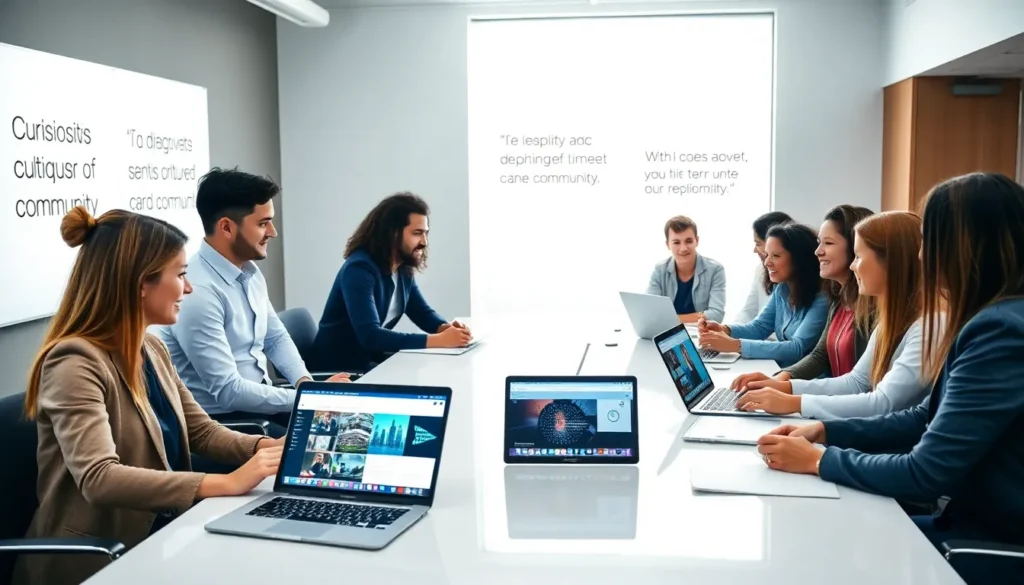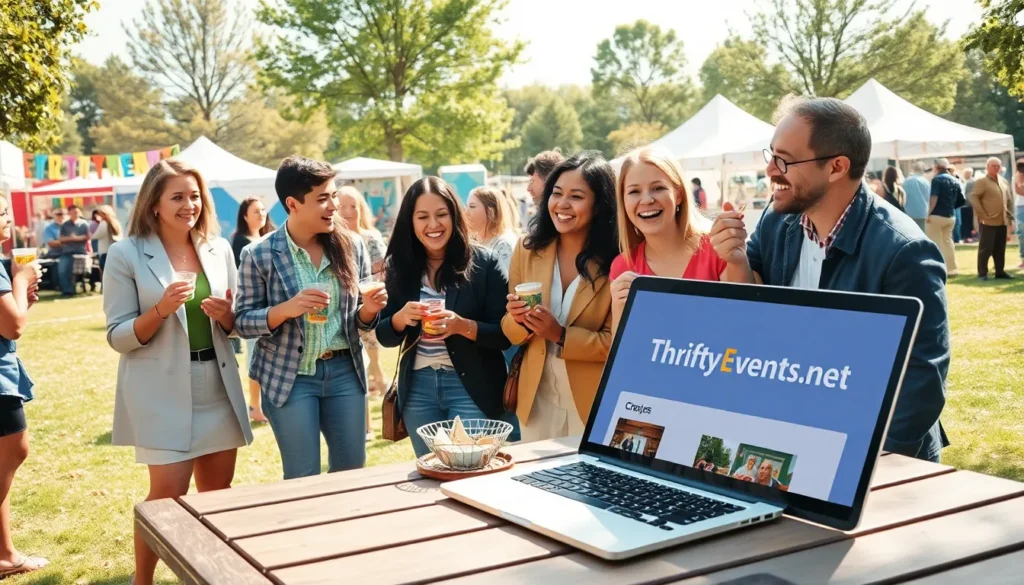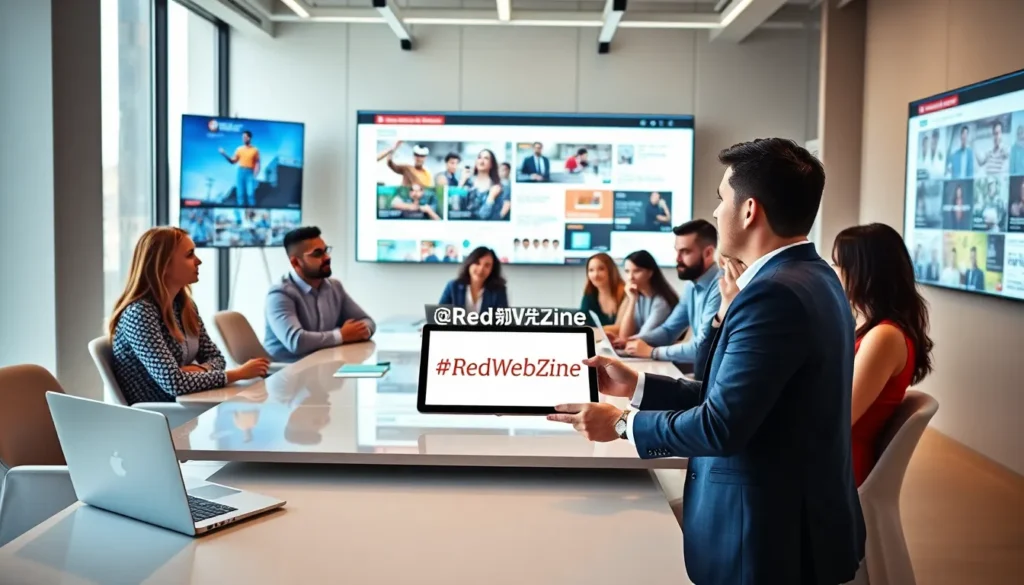Ever thought about how an event blog can turn your event marketing from ho-hum to wow? Imagine a place where you can share stories, insights, and sneak peeks that keep your audience buzzing with excitement. A dedicated blog offers a platform for creativity while drawing more attendees to your events than ever before. Plus, it’s a fantastic way to build a community around your brand. Let’s explore how to get your blog up and running at ThriftyEvents.net and why it matters.
Table of Contents
ToggleUnderstanding the Importance of a Dedicated Event Blog

Benefits of Having a Separate Blog for Events
Having a dedicated event blog provides a unique space to promote and share valuable information. It allows organizers to investigate into the details of each event, highlighting key speakers, topics, and experiences that attendees can expect. A blog becomes a central hub for all things related to the event, fostering excitement and anticipation.
Also, it’s an excellent way to establish authority in the event industry. Frequent, quality posts can position the blog as the go-to resource for those interested in specific events. Readers are more likely to trust a source that consistently delivers engaging and informative content.
How an Event Blog Enhances Audience Engagement
Audience engagement grows when people feel connected. An event blog invites interaction through comments, shares, and likes, turning passive viewers into active participants. By encouraging readers to share their experiences or thoughts on topics related to the event, the blog builds a community around shared interests. This fosters loyalty, increasing the likelihood that they will attend future events. Each post can serve as a conversation starter, enabling discussions that continue beyond the digital realm, enriching the overall event experience.
Key Features to Include in Your Event Blog
Crafting High-Quality Content for Your Audience
Quality content is king. Every post should provide value, whether it’s tips on organizing an event, insights on trending topics, or personal stories that resonate. Clear, concise writing grabs attention and keeps readers engaged. Incorporating a mix of informative articles, interviews with industry leaders, and event recaps can cater to varied interests, ensuring there’s something for everyone.
Varying the format also helps maintain interest: consider including lists, how-to guides, and opinion pieces. Also, always keep the target audience in mind, tailoring content to their preferences and pain points.
Using Visuals to Enhance Your Event Blog Posts
Visual elements play a pivotal role in maintaining reader interest. High-quality photos, infographics, and videos can not only break up text but also provide a more compelling storytelling experience. Images from past events showcase the energy and excitement that attendees can expect. Infographics can simplify complex information, making it easier for readers to digest and engage with the content.
SEO Best Practices for Your Event Blog
Keyword Research and Selection
Effective keyword research lays the groundwork for a successful event blog. It’s essential to identify keywords that potential attendees are likely to search for. Tools like Google Keyword Planner or SEMrush can help find relevant terms. Focusing on long-tail keywords can attract more targeted traffic, increasing the chances of converting visitors into attendees.
Carry out keywords strategically throughout your posts, ensuring they fit naturally within the content. This can include using them in titles, headers, and throughout the body of the text.
On-Page SEO Techniques for Blog Posts
On-page SEO is crucial for optimizing each blog post. Meta descriptions should be compelling and incorporate the primary keyword, encouraging clicks from search results. Structuring content with headings (H1, H2, H3) makes it easier for readers to navigate while also signaling to search engines what your content is about. Also, internal links to other relevant blog posts and external links to credible sources can enhance the blog’s authority and improve its search engine ranking.
Promoting Your Event Blog to Reach Wider Audiences
Utilizing Social Media for Blog Promotion
Social media is a powerful tool for promoting blog content. Platforms like Facebook, Twitter, and Instagram can drive traffic to your blog, helping you reach a larger audience. Share snippets of your blog posts along with eye-catching visuals to encourage clicks and shares. Engaging posts can create buzz around upcoming events, enticing users to visit your blog for more details.
Consider using targeted ads to reach specific demographics or locations relevant to your events. This enables you to get your content in front of individuals who are most likely to be interested.
Collaborating with Influencers and Other Blogs
Partnering with influencers and related blogs can expand your reach. Influencers often have established audiences that trust their recommendations. By collaborating on guest posts or social media takeovers, you can tap into these audiences, presenting your event blog to new potential attendees.
Also, forming partnerships with other blogs in your niche can provide valuable backlinks, driving traffic while boosting your SEO.
Measuring Success: Analyzing Your Blog’s Performance
Tools for Tracking Engagement and Traffic
To gauge the success of your event blog, using analytics tools is essential. Google Analytics provides insights into visitor behavior, including traffic sources, bounce rates, and session duration. This data is vital for understanding which types of content resonate the most with your audience.
Additional tools like Social Media Analytics can help track how well your content performs across different platforms. Understanding audience engagement enables you to refine your strategy and focus on what works.
Adjusting Your Strategy Based on Analytics
Analytics insights should inform your content and promotional strategies. If certain topics generate high traffic or engagement, consider producing more content in that vein. Conversely, if certain posts underperform, analyze whether their content, promotion, or timing was the issue. Regularly adjusting your strategy based on this data ensures your blog remains relevant and engaging.









